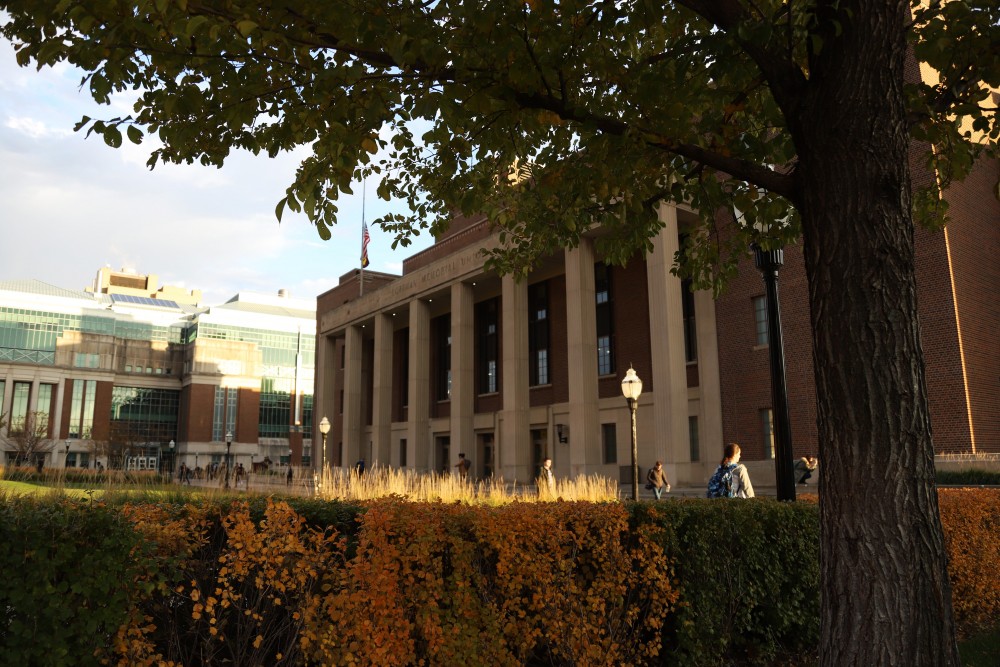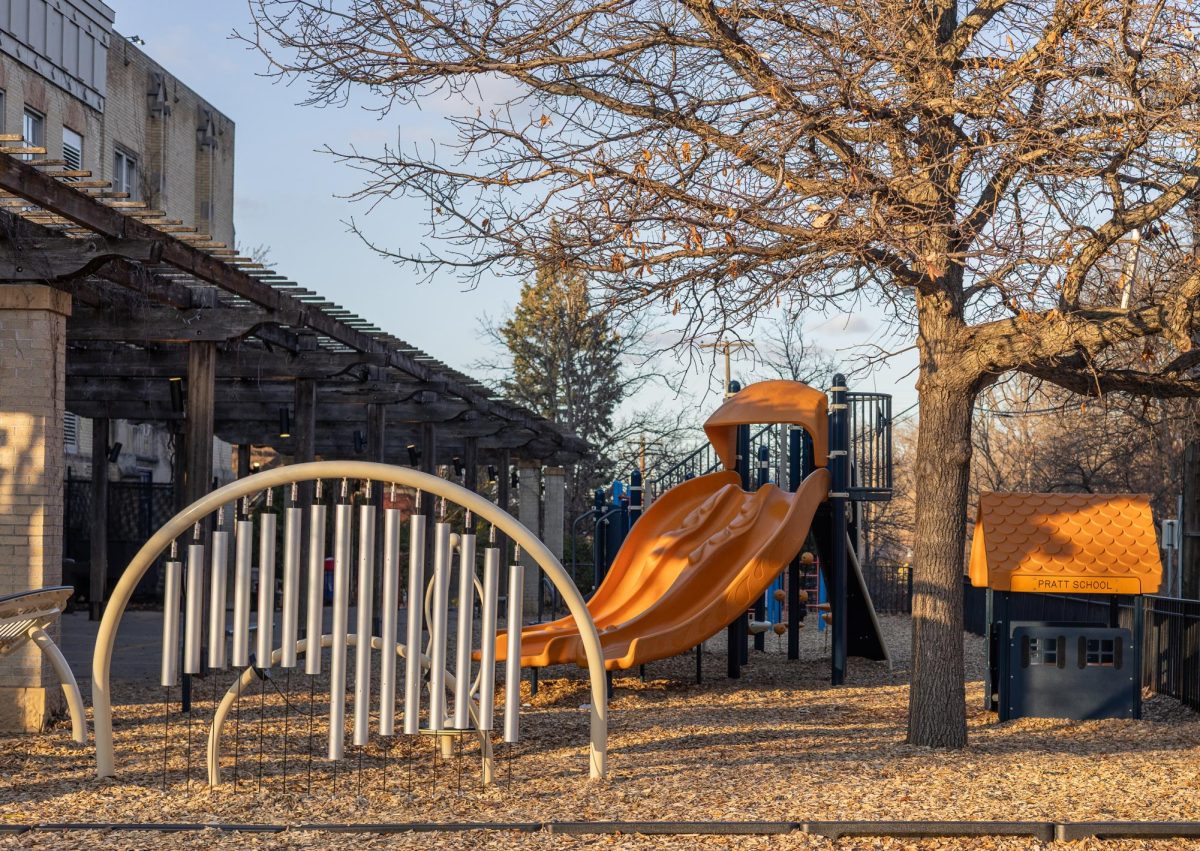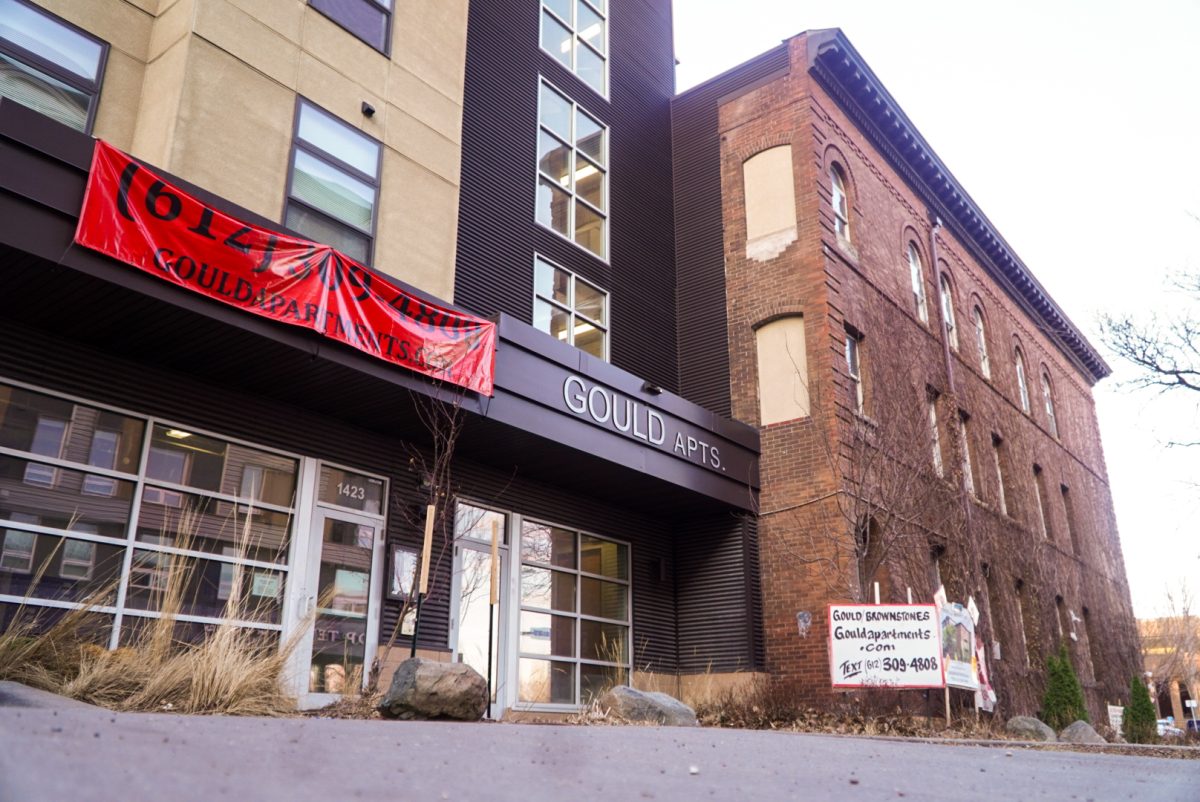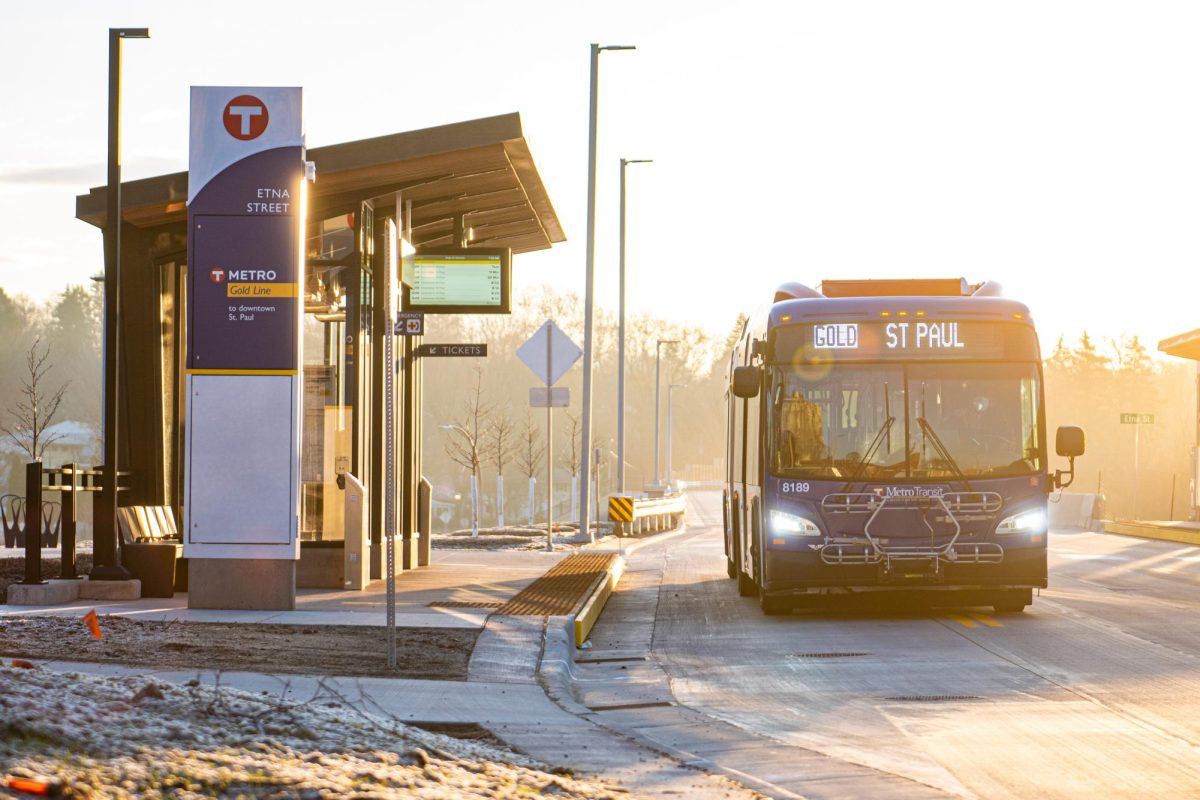The discussion on renaming campus buildings will come to a head Friday, when the Board of Regents will hold a special meeting at 1 p.m. in McNamara Alumni Center. The board is slated to vote on whether to rename Coffman Union and three other buildings on campus.
The board, which is divided on the issue and will make the final call on whether to rename buildings, announced the meeting earlier this week. But with only one regent expressing support for renaming so far, it’s expected the regents will not go forward with renaming.
Last month, President Eric Kaler told the Minnesota Daily, “Right now if we took a vote, it probably would not pass.”
What should we expect at Friday’s meeting?
The board is expected to take up three resolutions at the meeting, according to a draft of docket materials obtained Thursday by the Minnesota Daily.
The board will decide on whether to decline renaming Coffman Union, Coffey Hall, Nicholson Hall and Middlebrook Hall.
The board will also discuss a resolution directing incoming President Joan Gabel to develop “ongoing commemorations, educational activities, and/or permanent educational displays” in one or more buildings during the the 2020-21 academic year in an apparent effort to acknowledge the school’s history of discrimination.
Regents will also vote on a statement commending the task force’s work after the group’s report came under fire from several regents.
“The University’s faculty is commended for contributing to this ongoing public discussion concerning our core values,” the draft resolution reads. “Disagreement over the President’s recommendations from that report should not cloud the respect this Board holds for the quality of the Task Force’s work product and the integrity its members brought to bear on their academic inquiry.”
With the regents’ likely negative response to renaming campus buildings, the Minnesota Student Association is rallying students to sit-in at the Friday special session. The group is providing posters to students at the meeting and encourages them to wear white in protest.
“It’s time to take action and collectively stand up to injustice,” MSA’s announcement of the sit-in read. “We must now ensure that the [Board of Regents] hears us.”
Faculty also began mobilizing after learning of the meeting, and are urging their peers to show up in support of task force members.
Renaming was one of Kaler’s top priorities before he steps down at the end of June. Questions remain about how President-Designate Joan Gabel will respond to the issue. The upcoming regent re-election could also swap in up to four new board members.
What started the renaming discussion?
The “A Campus Divided” exhibit, which opened at the University’s Andersen Library fall 2017, sparked campuswide discussions regarding building namesakes and historical racism on campus.
The exhibit detailed former University President Lotus Coffman’s and other administrators’ work to support segregated student housing and the surveillance of black and Jewish students in the 1930s and ‘40s.
Several months after the exhibit opened, the Minnesota Student Association organized a silent protest in response to the exhibit to draw attention to the University’s past discriminatory actions. MSA passed a resolution last year in support of renaming Coffman Union. Recently, the group called the regents’ denouncement of efforts to rename campus buildings “deeply disappointing.”
What led to Friday’s meeting?
The University’s efforts to examine the namesakes of four University buildings are unprecedented in scope and length — the University has never renamed a building since its founding in 1851, according to Kaler. Two committees and 18 months of deliberation have still not offered resolution on the issue.
Last fall, Kaler charged the Task Force on Building Names and Institutional History to draft a report on the administrators mentioned in the exhibit. In February, following three pushed deadlines, the task force recommended removing the names of Coffman Union, Nicholson Hall, Middlebrook Hall and Coffey Hall.
Since the release of the 125-page report, Minnesota Daily reporting as of April 8 shows the board appears divided on the decision to rename Coffman Union and three other campus buildings.
Some have criticized Kaler for not taking a more vocal role in defending the task force’s work following the accusation of “academic dishonesty” from a regent.
“I think it is time for the president of the University of Minnesota … to more forcefully and vigorously defend the task force,” Riv-Ellen Prell, curator of the “A Campus Divided” exhibit who advised the task force, told the Minnesota Daily last week.
William Jones, who was on the task force, said Kaler should answer to the regents’ allegations of academic misconduct separately from renaming, saying it “calls into question the entire moral structure of the University, and that needs to be addressed. Those types of charges can’t just be thrown around without a serious attention to the gravity of that charge. I think the president needs to speak to that.”
What did the task force report find?
The report illustrated Coffman’s support of eugenics and enforcing segregation in student housing. It cited a pamphlet that quoted Coffman as saying, “It is my opinion that the great hope for the race lies in the intensive study of eugenics applied to human families.”
The report noted former comptroller William Middlebrook’s refusal to add non-discrimination covenants to University land sales in 1959, despite requests by the NAACP. It also illustrated former Dean of Student Affairs Edward Nicholson’s tracking of Jewish students to further the political goals of a Republican lawmaker in hopes of influencing the University’s regent-selection process.
The report also acknowledged controversial administrators’ positive impacts, like Middlebrook’s efforts to make the University more affordable.
However, the task force concluded that the administrators’ conduct was excessive, even for the time. They pointed to former president Guy Stanton Ford, who ended segregation in student housing in 1937 until his successor, Walter Coffey, reversed his policies.
How did regents respond to the report?
Several regents have criticized the report, saying there isn’t enough evidence to support renaming; others on the board say they haven’t made up their mind. Only one regent, Abdul Omari, has voiced support for renaming as of April 8.
Regents Michael Hsu and Darrin Rosha have most vocally rebuked the report, saying it misrepresented former administrators’ roles in segregated housing and anti-Semitism on campus.
Hsu has called for an investigation into the renaming task force, accusing faculty of “academic dishonesty” for omitting evidence from their report. He has said “I’ve looked at thousands of pages. I’ve probably looked at more pages and documents than the people on the task force have.”
Both Hsu and Rosha said their criticisms of the report are rooted in analysis of evidence included by the task force, as well as documents left out of the report. Several regents visited local archives to do their own research.
“I have yet to take my focus off of the factual analysis,” Rosha said. “I haven’t gotten past getting clarification on the actual factual underpinnings. And once we have that, then I think we move to the next stage.”
Austen Macalus, Jake Steinberg and Niamh Coomey contributed to this report.








